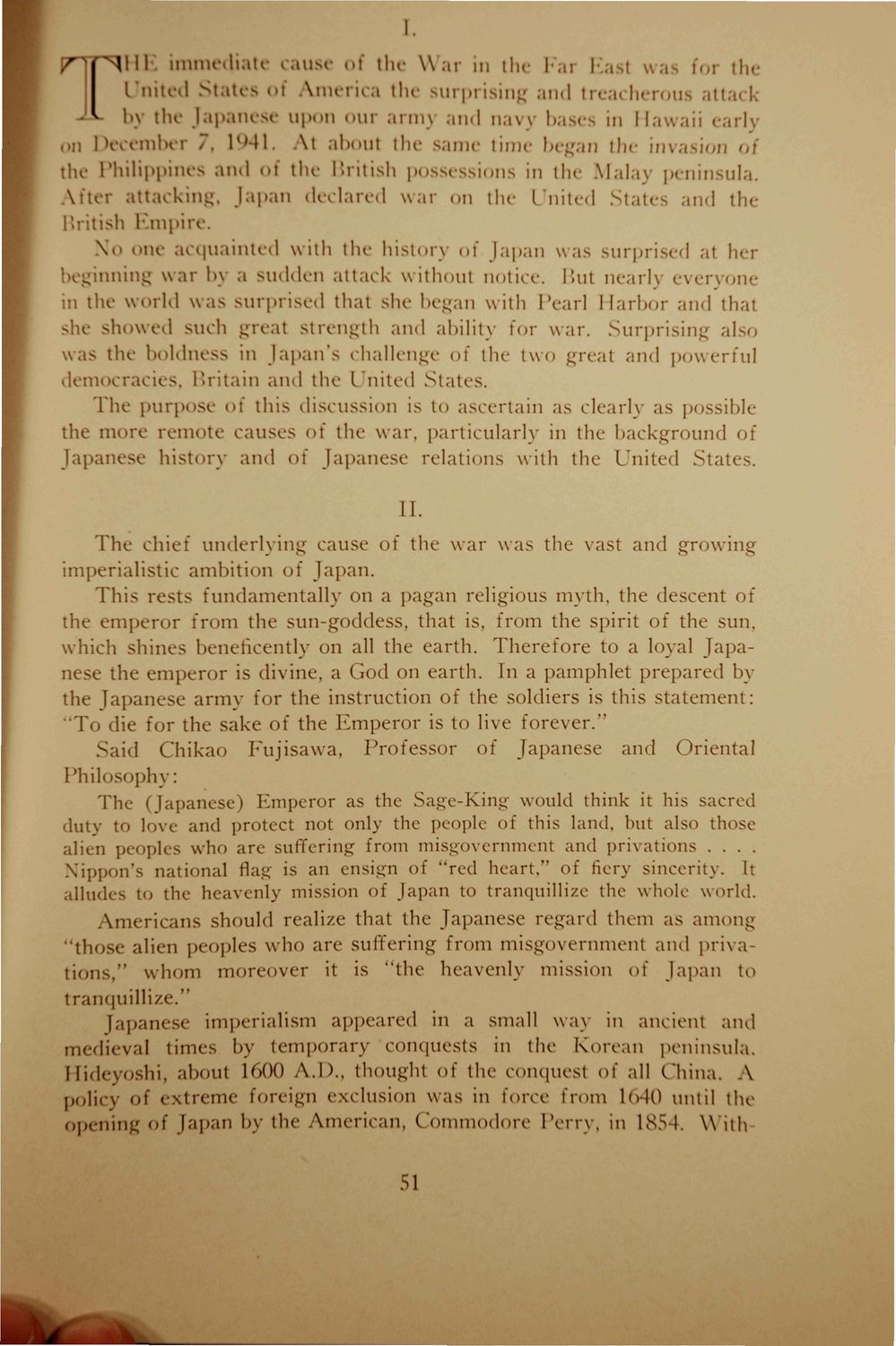| |
| |
Caption: Convocation - 1942 Winter-Spring
This is a reduced-resolution page image for fast online browsing.

EXTRACTED TEXT FROM PAGE:
1. T ill immediate ausc i the \\ ar in the Far I t was for th United States oi Vmerica th< iurprising and treacfo u. b) tin [apanese upon oui armj and navj I i in Ma', m - rl i Deceml i 7, 1941, At about the same time be in the invasion of the Philippines and f the British possessions in the Mai; penin ula. \iter att :kin [apan declan I war on the Unit I Stat< ind t! 1 ish Empire. \ in |uaint< i with the histor) of Japan was surpri I at 1 r \x nnin- war b) a sudden attack without notice. But nearly everyon< in the world \\ surprised that she began with Pearl Harbor and that she showed such great strength and ability for war. Surprisin als< was the boldness in Japan's challenge of the two great and powerful dem< racies, Britain and the United States. Tin purpose of this discussion is to ascertain as clearly as po ibl< the more remote causes of the war. particularly in the background of Japanese history and of Japanese relations with the United Stales. II. The chief underlying cause of the war was the vast and growing imperialistic ambition of Japan. This rest> fundamentally on a pagan religious myth, the descent of the emperor from the sun-goddess, that is, from the spirit of the sun. which shines beneficently on all the earth. Therefore to a loyal Japanese the emperor is divine, a God on earth. In a pamphlet prepared by the Japanese army for the instruction of the soldiers is this statement: "To die for the sake of the Emperor is to live forever." Said Chikao Fujisawa, Professor of Japanese and Oriental Phil< ophy: The 'Japanese) Emperor as the Sage-King would think it his sacred luty to love and protect not only the people of this land, hut also those alien peoples who are suffering from misgovernment and privations . . . . Nippon's national flag is an ensign of "red heart," of fiery sincerity. 1 tllud 5 to the heavenly mission of Japan to tranquillize the whole world. Americans should realize that the Japanese regard them as among "tho alien peoples who are suffering from misgovernment and privat i o n s / ' whom moreover it is "the heavenly mission oi Japan to tranquillize." [apanese imperialism appeared in a small way in ancient and medieval times by temporary conquests in the Korean peninsula. Ilidevoshi, about 1600 A.D., thought of the conquest o\ all China, \ police of extreme foreign exclusion was in force from 1640 until tin opening of Japan by the American, Commodore Perry, in 1854, With 51
| |